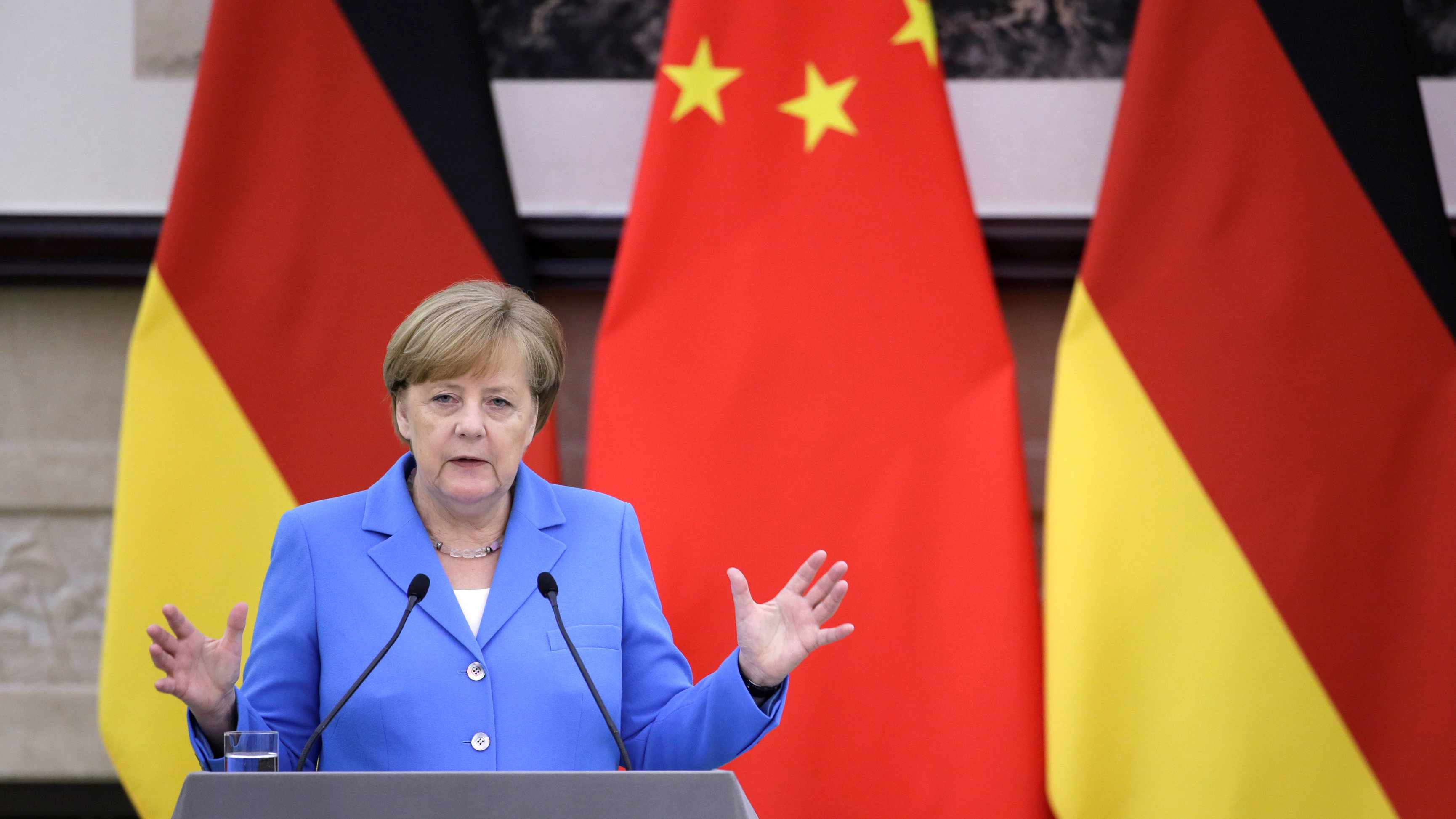
Politics
11:26, 24-May-2018
Angela Merkel in China: Four issues to watch
By John Goodrich

German Chancellor Angela Merkel arrived in Beijing on Thursday morning for talks with President Xi Jinping and Premier Li Keqiang before traveling to the southern innovation hub of Shenzhen.
Merkel, who was in Russia last week for talks with President Vladimir Putin and in the US at the end of April for discussions with President Donald Trump, has said strengthening multilateralism is a key goal on her 11th trip to China.
Read more
The German chancellor is joined in China by a business delegation, including the bosses of Volkswagen and Siemens.
Chinese Foreign Ministry spokesperson Lu Kang said on Friday that the leaders will exchange views on China-Germany and China-Europe relations and cooperation, as well as other major international and regional issues.
Multilateralism
Merkel stressed the important of strengthening multilateralism when announcing her intention to visit China last week, noting the close cooperation between the countries through mechanisms such as the G20.
Observers will be watching to see whether the German chancellor sides against the US on global issues the Trump administration has shifted away from, including the Iran deal, climate change and free trade.
Merkel has spoken of the importance of the transatlantic alliance but has also found common ground with other powers over the past year.
Iran deal
Germany and China are two of the signatories to the Joint Comprehensive Plan of Action, otherwise known as the Iran nuclear deal, and the leaders will likely discuss progress in saving the agreement after the US withdrawal two weeks ago.
Both countries have said they are committed to saving the deal. The signatories are exploring ways to ensure European companies, in particular, can continue to operate in Iran while avoiding US sanctions.
International trade
China and the EU have been threatened with trade tariffs by the US, and both Beijing and Berlin are on common ground in support of rules-based globalization. Both countries are committed to working through the World Trade Organization.
"Both countries are in agreement that open markets and rules-based world trade are necessary. That's the main focus of this trip," Merkel's spokeswoman Martina Fietz said in Berlin on Friday.
Bilateral trade
China was Germany's most important trading partner in 2017 for the second consecutive year, and German companies were the most prominent European investors in China. However, Merkel has previously raised questions about access to the Chinese market and intellectual property.
"China and Germany stand by the rules of the WTO; however, we will talk about reciprocal access on trade and intellectual property questions," Merkel said in a podcast last week.
Chinese Foreign Ministry spokesman Lu Kang said it was hoped the visit would "boost political mutual trust, push forward bilateral cooperation in various fields, and inject new impetus into the development of bilateral ties in the new era."
1km

SITEMAP
Copyright © 2018 CGTN. Beijing ICP prepared NO.16065310-3
Copyright © 2018 CGTN. Beijing ICP prepared NO.16065310-3